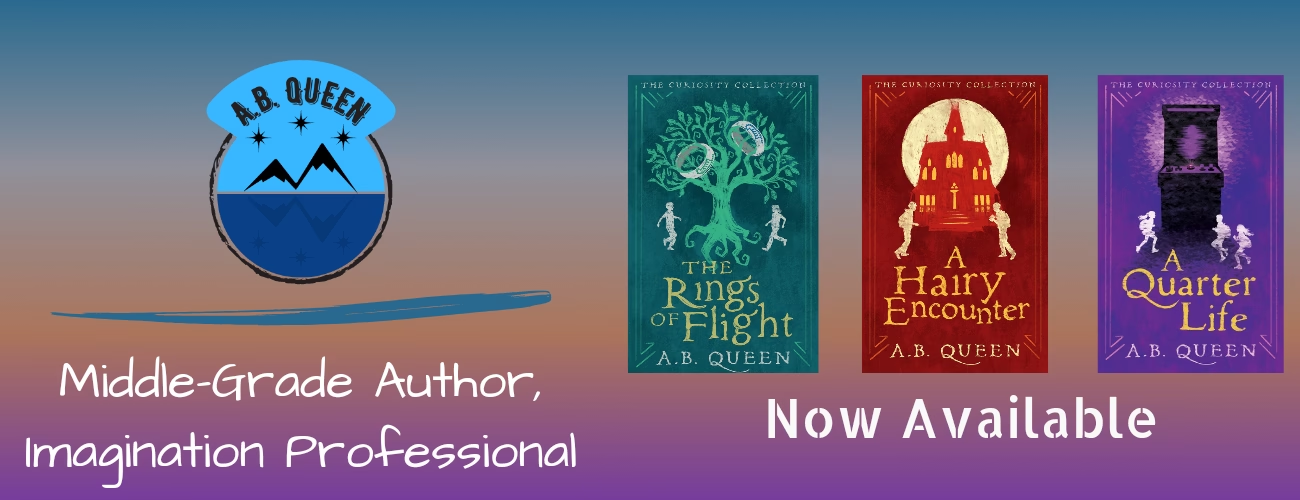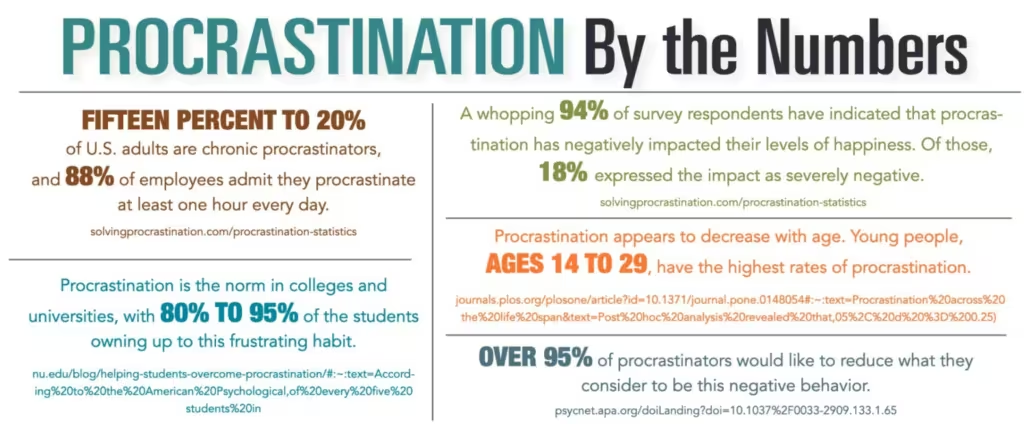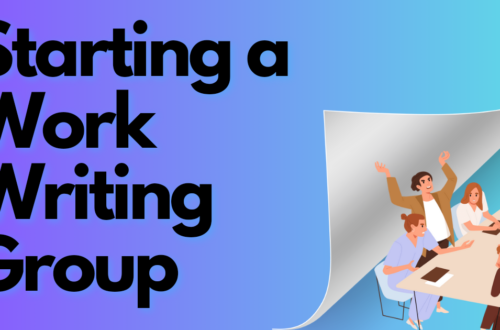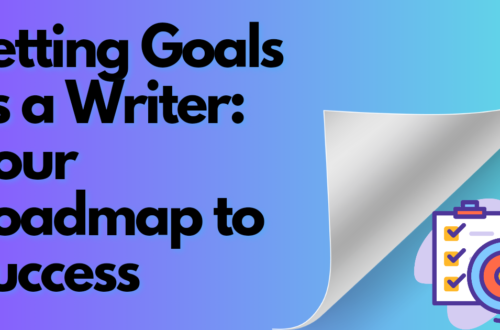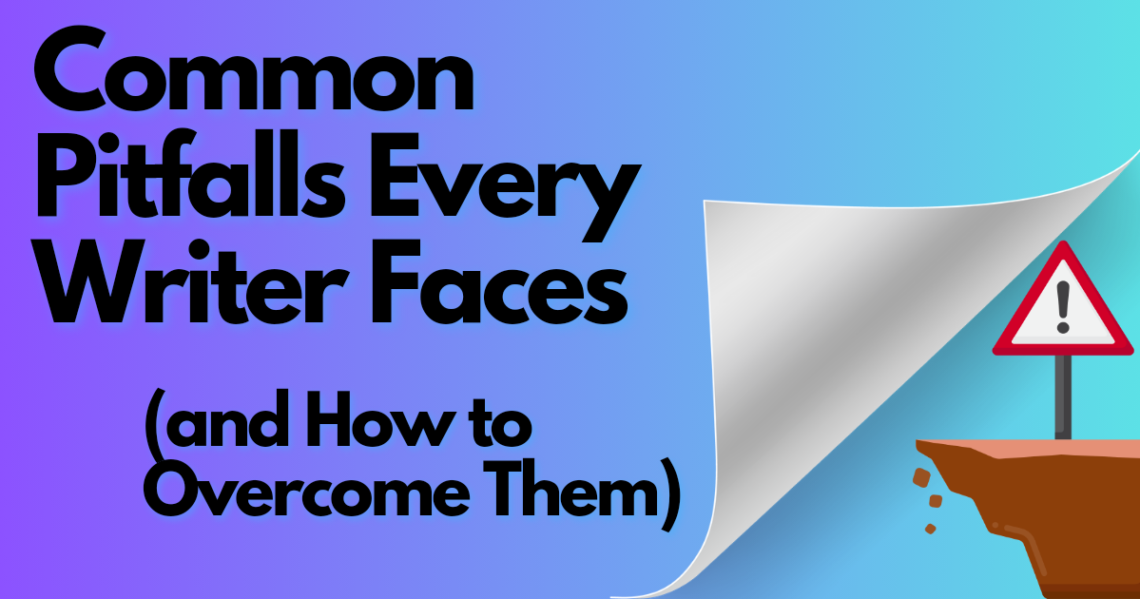
Common Pitfalls Every Writer Faces (and How to Overcome Them)
EVERY. SINGLE. WRITER. Makes mistakes.
Listen, writing is hard work. It takes a long time, a lot of effort, and part of our souls, and that means mistakes are going to happen. However, it is all part of the journey and an incredibly important part of the journey.
In this article, I want to go over many of the mistakes the writers will deal with, how to embrace them, and how to learn from them. Recognizing mistakes is a valuable tool for writers to possess. If you, as a writer, can identify the mistakes, you can use what you learned from them to your advantage and move forward and upward as a writer.
Go and make interesting mistakes, make amazing mistakes, make glorious and fantastic mistakes. Break rules. Leave the world more interesting for your being here.”
― Neil Gaiman, Make Good Art: Inspiration for Creative People
Procrastination
Well, well, well, if it isn’t procrastination. Our old and sometimes annoyingly pesky friend. Probably the number one issue that all writers face sooner or later. It shows up at our front door randomly and can be the biggest pain to overcome. Don’t be fooled, though, procrastination comes in all shapes and sizes. It can take the form of unloading the dishwasher and deep cleaning the kitchen or getting a head start on next year’s taxes (even though it’s June and they aren’t due for another ten months).
Consequences
- Missed Deadlines.
- A common but unfortunate one.
- Increased stress due to a lack of productivity.
- This one gets me all the time. The less productive I am, the more stressed I get, and the more down I get.
- Quality of Work Compromised.
- When your timeline is closing in and you realize you need to write fourteen chapters by the end of the week.
- Strained Relationships.
- Business relationships may realize they can’t depend on your timeliness and quality of work.
Solutions
Thankfully, procrastination impacts all humans, which means there are plenty of resources and ideas out there for getting over it and or even getting ahead of it.
- Setting Clear Goals
- Look into S.M.A.R.T. goals.
- Read up on H.A.R.D. goals.
- Taking a few moments to set some small and easily attainable goals could help your project feel less daunting and more achievable.
- Create a Schedule
- Google Cal is a great and easily accessible resource.
- A dry erase board is a fun and energetic way to keep a calendar.
- Schedules are a must for me. A while back, I took about 30 minutes to set up a Google Cal to carve out my entire day. There are, of course, things that pop up that aren’t on the cal, but when asked if I can do something or meetup with people, it allows me to have some dedicated time for social AND dedicated time for writing.
- Minimize Distractions
- Take a moment to use some features on your phone to limit the use of these programs.
- Log out of your streaming networks. This makes it harder to quickly sit down and watch a show, forcing you to enter your log-in information.
- The constant buzz buzz of our phones is incredibly distracting and addicting. It seems that the whole world is fighting for our attention. From social media to streaming, there is enough content and distractions out there to keep us busy for thousands of lifetimes.
- The key is to create an environment that helps you focus on writing and less on the world around you.
Writer’s Block
Oh boy, writer’s block. A nasty creature that even comes for the best and most disciplined writers. It will come out of nowhere, throwing a right hook into the jaw of your creative being. It has had me backed into a corner many times before, and for weeks on end.
Though, just like procrastination, there are plenty of resources, tools, and hacks to get you over that slump and back into a finger-flowing typing mode.
Consequences
- Frustration.
- It can be incredibly frustrating to deal with writer’s block. It can cause doubt and insecurity as a writer.
- Delayed and Stalled Projects.
- If you can’t write, then that beautiful manuscript of yours is going to be delayed, and the world will have to wait even longer to read it.
Solutions
There are many tricks and workarounds to help get over writer’s block. Each person has their own technique that works for them, but here are a few that are common and work quite well.
- Freewriting
- Just write. It doesn’t matter what. Don’t worry about grammar, structure, or really anything. Just write whatever comes to mind. It doesn’t need to be part of your story, as long as pen is to paper or fingers are to keys.
- Switch Scenery
- Coffeeshops
- Libraries
- Parks
- Rental office space
- I can get a bit squirmy sitting in my office at my desk day in and day out. As much as I love it, sometimes I need a different scene to help the words flow a bit better.
- All great ways to get out of the house and help the mind clear.
- Engage with Other Mediums
- We are creatures of comfort, we will often rely on the same interests and tastes. Taking in other forms and genres of art can be a great way to unlock your mind and defeat writer’s block. Inspiration can be found in the most unusual of places.
Don’t let writer’s block get you down too much. With a little bit of research and effort, you can have it defeated in no time.
“There’s no such thing as writer’s block. That was invented by people in California who couldn’t write.”
– Terry Pratchett
Overediting During the Drafting Phase
The perfect first draft. It kind of sounds like a knock-off Indiana Jones movie, doesn’t it? Let’s face it, we have all thought about and dreamed of writing a draft so good that it doesn’t need a single edit, revision, or update. Call the publishers, we are ready to print!
Well, to be honest, it’s a pipe dream. Every single book needs edits. Every single book needs a revision. It’s just the nature of the process. While we can dream of having the perfect first draft, there is also a limit on the number of edits that a writer should focus on during the first draft. Overediting is a common mistake writers, especially early writers, will make. It’s not a bad thing, but it can get in the way of your writing and prevent you from truly creating a great piece of work.
Consequences
There are a few clear reasons why we should avoid writing the perfect first draft and overediting during the draft phase.
- Slows Down the Process.
- When we focus on the grammar and sentence structure of our first drafts more than the story and writing itself, it can slow down the process and cause you more headaches in the long run.
- Hampers Creativity
- When you stop in mid-sentence to determine if you want a semicolon or a comma, this can take you out of your flow and out of the right headspace as a writer.
Solutions
This mistake is usually a pretty easy one to fix. It may take a little bit of muscle memory training, but it can be done with some simple workflow changes.
- Separate Writing and Editing
- Tying back to one of the procrastination tricks, use a calendar to have writing time vs. editing time.
- Disable grammar plugins on your computer. Allowing you to not see that little red line, prompting you to make those edits.
- Separate your writing and editing by only focusing on the story and writing until you are fully finished with the work. Then go back and do your first round of edits.
- Use Goals to Reach Word Count
- Using a goal to reach a word count every day can help you limit edits and focus on writing itself.
Inconsistent Voice and Tone
Inconsistent voice and tone are a real concern and nightmare to worry about. Sure, there are editors out there that will help determine if the voice is consistent, but it could potentially cause more work in later drafts.
It’s challenging to have consistency across your work, especially in longer works or having multiple projects. While it is incredibly crucial to work on having a consistent voice, it is a mistake that all writers make in their careers sooner or later, but it is also something that can be trained with enough practice.
Consequences
There are a few consequences that come along with a voice or tone change. And if it gets through the editing stages without being fixed, it can be devastating to the success of your book.
- Confusing Readers
- One of the top goals of a writer is to keep the reader engaged in the story. This is hard to do when you have a character that behaves one way and then acts like a completely different person in the next chapter.
- Weakens the Narrative
- This also comes into play when you decide which perspective you are telling your story from. You wouldn’t want to have a first-person story, then switch to a third-person story without explanation or being part of the plot.
Solutions
Handling a voice and or tone change in your work is more preventable than the last couple of things we talked about. A little bit of prework can set you up for success and never worry about a change in voice or tone.
- Outline
- Writing down the tone of your work that you are aiming for before you start can help cement the idea in your mind.
- Review regularly to keep the style fresh in your mind and never needing to go back and make large changes.
- While many authors prefer not to outline, there is a benefit to outlining a few items of the story.
The 1990’s animated show Batman: The Animated Series is a great example of tone and voice consistency. This is due to the writers had a “Writer’s Bible” that outlined and made clear everything they needed from show to show.
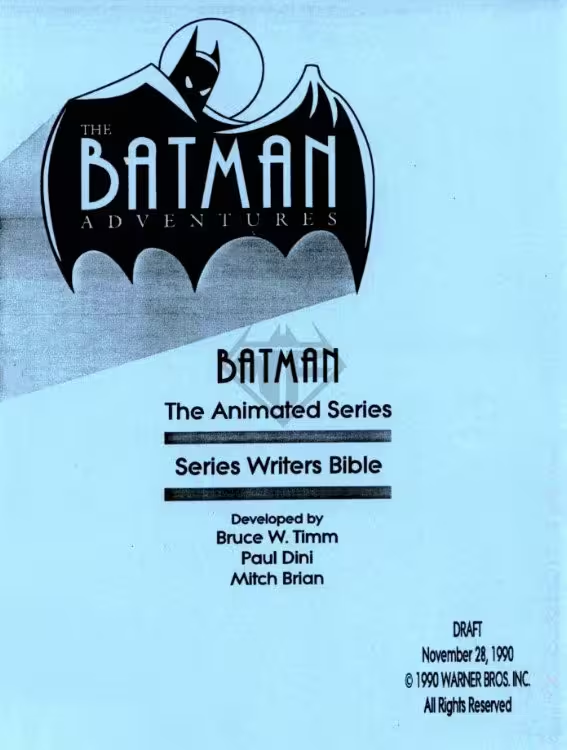
Clichés and Overused Phrases
You know, sometimes I like to think I am a loose cannon and usually think outside of the box, but at the end of the day, I am just a chip off the old block.
An example filled with overused phrases and cliches. It’s going to happen, and it’s not the worst thing to happen. Some of the best books I have ever read have used a cliche or two. I mean, it’s going to happen as we all still use cliches and overused phrases in everyday life. But when it comes to our writing, it’s our chance to shine and show some new, unique, and creative phrases.
Consequences
When you fill your writing with cliches and overused phrases, it could be a big turnoff to your reader and prevent your work from ever truly shining.
- Lack of Originality
- When filled with cliches, it can feel unoriginal and hard to make its way out of the noise of all the other books.
- Reader Engagement
- Using the same cliches in books can cause disinterest in readers. Which, of course, impacts sales and/or reads.
Solutions
The cool thing about overcoming this mistake is that it can be kind of fun to do so. It just takes a little bit of brainpower and creativity.
- Be Specific
- Use unique, creative, and fun details in your work. Try coming up with fresh metaphors or silly descriptions.
- Expand Your Net
- Reading more widely can help introduce you to new styles of writing, authors, and genres. Fantasy can often be filled with the same descriptions and metaphors, but when you add in metaphors from a mystery novel, it can bring your work to life.
Lack of Character Development
Underdeveloped characters can get the best of us. I will sometimes find myself losing interest in a piece of my own work due to a character falling flat. Though this one I always like fixing and improving on because it allows me to be a bit of a nosey nelly.
Consequences
I always found this to be one of the biggest mistakes in fiction writing. Readers need and crave strong and interesting characters.
- Unengaging and Unrealistic Characters
- If your reader doesn’t find your character interesting or realistic, they will put the book down and never look back.
- Too Much of the Same
- On the other side, your characters could end up all being the same, causing the entire story to fall flat. Each character needs to be different, this is the realism that helps readers connect to a world of fiction.
Solutions
I love this solution so much because it is a cornerstone of human nature.
- People Watch
- Watch people to understand them. Go sit on a bench downtown, in a coffeeshop, or just someplace with lots of foot traffic and watch how people walk, talk, move, and interact with each other. Bring a notebook and start writing these traits down.
- Create Character Profiles
- Each character you write could benefit from a profile that describes their traits. Write down the emotions they show the most, the quirks they have when in group settings, or even how they eat an apple.
- Use the Show, Don’t Tell Method
- By using the show-don’t-tell method, you can explore more of your character’s behaviors, painting a vibrant picture of the character for your reader.
Plot Holes and Inconsistencies
One of a writer’s worst fears—you know, besides no one reading their books—plots holes and inconsistencies. Finding a plot hole can be devastating, especially after publishing. This happens in both films and novels.
Consequences
Plot holes can be hard to catch, hard to fix, and hard to get over. The consequences of plot holes and inconsistencies need to be discussed to show how crucial it is to fix them before they happen again.
- Frustrates Readers
- If you have ever been on the internet, you know that fans can quickly become very upset if something they were enjoying all of a sudden has a large plot hole. There are countless forums, articles, and posts going into the different plot holes of different pieces of work. Tread carefully, as you may not want to know some of them for your favorite pieces of work.
- Sets Up Failure
- If you are working on a series, it can be difficult to get around a plothole for the next book in the series. The plot hole could instantly kill all other books in the series, unless you do some series retcon, which could also take readers out of the story.
Solutions
While there aren’t solutions to fix this after it is published, there are solutions to prevent it from happening going forward.
- Outline
- As I mentioned before, not all of us are outliners. However, this is one of the most valuable reasons to consider outlining. It allows you, as a writer, to understand the world, the mechanics, and the plot more intimately, helping prevent inconsistencies and plot holes.
- Beta Readers
- Beta readers can be one of the most valuable resources that one could have. Beta readers help you get many of the kinks and tangles out of your work. They are a fresh set of eyes when your eyes have adapted to your work.
While plot holes and inconsistencies are scary things to think of, with enough patience, practice, and thoroughness, these things can be avoided.
Lack of Clarity and Coherence
As a middle-grade author and reader, clarity and coherence are two of the things I look for the most. This isn’t because I believe middle-grade needs to “dumb down” the writing and reading—quite the opposite, actually. I am a strong believer that profound writing should be accessible to all and doesn’t need to be complex or confusing.
Consequences
Many of us writers like to get caught up in the high-society thought process of writing. Writing a book that should come with a dictionary or three P.H.D.s to understand. However, dreaming of writing a book like this is not always the bees knees.
- Re-reading
- Nothing takes me out of a story faster than complex sentences where I need to re-read them a couple of times. This is true for many readers, as it reminds us that we haven’t escaped to a fantastic world, but rather, the word was created by another human.
Solutions
While it is excellent for us to push the boundaries of our writing, we need to keep in mind our audience and who is most likely to read the book.
- Simplify the Language
- Avoid complex sentence structures, jargon, and words that you had to look up before writing them.
- Edit for Flow
- Try to make sure that each sentence easily flows and transitions to the next sentence.
“If you can’t explain it simply, you don’t understand it well enough.”
– Albert Einstein
Ignoring Feedback
Okay, here’s the thing. Writers are going to get feedback, it’s part of the job. And every writer is going to get feedback they love and feedback they don’t love. With that said, every writer will make the mistake of ignoring valuable feedback while focusing on the wrong feedback.
We must find the balance between reading our feedback and understanding which feedback is good for us and which feedback is toxic.
Consequences
Ignoring some feedback and focusing on the wrong feedback isn’t necessarily the biggest mistake, but it could have its disadvantages in the long run.
- Missed Opportunities for Growth
- Feedback is crucial for artists to grow. When we ignore critical and practical feedback, we are choosing to ignore our individual improvement and growth.
Solutions
Ignoring feedback may be one of the most difficult mistakes to fix, as it is a mental game like no other. We can feel vulnerable when we take in feedback, and we can feel hurt. With practice, we can build thick skin and improve our skills.
- Listen to Fans
- As artists, we should listen to our readers and fans to better understand what they see in our work. Understanding what they like and dislike can help you, as a writer, better understand your work from a wider point of view as well as the business.
- Be Open-Minded
- This ties into the last one. Being open-minded allows us to bring down our defensive walls and willingly accept feedback. This can drive us to develop our craft in fun and interesting ways.
Poor Time Management
I will be the first to admit that I like to bite off more than I can chew. (Look! A cliche!). I am a very ambitious individual who has a lot of dreams and goals I need to achieve. But with that, I have had to learn a great deal about time management. Making sure I have the proper time throughout the day to get things done is an every-day practice.
Consequences
If I fail to practice time management continuously, I can easily find myself in sticky situations, and I need to now learn how to juggle to properly handle it all.
- Missed Deadlines
- Being self-published, this isn’t the worst of everything, but it does mean that I don’t get as much done, my goals aren’t met, and my dreams get pushed back a little bit more.
- This could be worse if you are traditionally published, as deadlines are crucial and could be career-ending.
- Stress
- When we improperly manage our time, this can quickly lead to stress, which can lead to poor health. Writing should be fun and low-stress. Or at least as little stress as possible, so we should work on taking the stress of poor time management out of it.
Solutions
On the bright side, there are some excellent resources and tools accessible to everyone who is dealing with time management issues. With the proper use of these tools, you could turn things around quickly and efficiently.
- Prioritize Tasks
- Focus on what is important to you above all else. If it is getting the first draft completed, work on it for many hours a day before you even look at your email.
- Use Tools
- There are countless tools out there for us to implement and use. Between apps, programs, and physical timers and calendars. A quick Google search could help you find some excellent results.
Like many things, time management just takes a little bit of practice and consistency. It may be something you quickly grab onto, or it may be a skill you have to practice every day.
Conclusion
Today we have gone over some classic and unavoidable mistakes. Everything from story-based mistakes, such as plot holes and character development, to personal mistakes, such as ignoring feedback or poor time management. To be honest, these are only a handful of mistakes you may make in your career. There are many, many, many more types of mistakes out there that you will potentially run into throughout your writing journey.
With that said, I want to make sure that you understand that mistakes will happen, and that is okay, it is all part of being a writer. I personally love making mistakes, as it allows me to grow more than any other way. The most important thing you can do when you make a mistake is to learn from it. Take a step back, study it, understand it, and implement a new way to avoid it in the future. It may take some time to properly avoid those mistakes, but that is okay. After all, we are all only human.
Additional Resources
Further Reading:
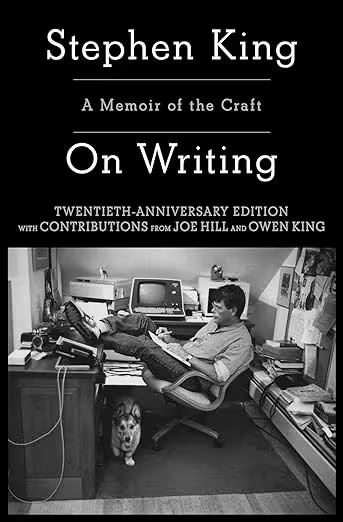
- On Writing – Stephen King
- A must-read for any author or writer. There are some excellent tips and tricks in the book that will surely help you grow as a writer.
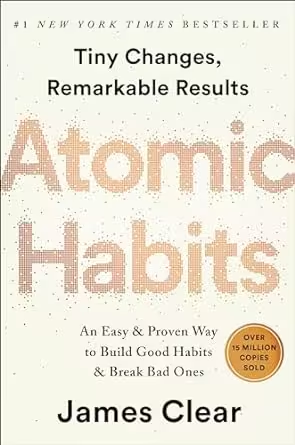
- Atomic Habits – James Clear
- Building healthy habits is a fundamental building block for avoiding making the same mistakes. A pillar in the habit-building world.
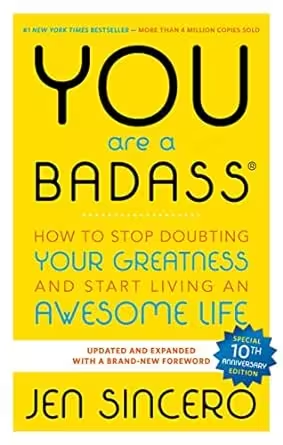
- You are a Badass – Jen Sincero
- We all need to feel good about ourselves, especially when we are trying to get over some mistakes we have made. I loved this book and would recommend it to anyone who needs a bit of cheering up.
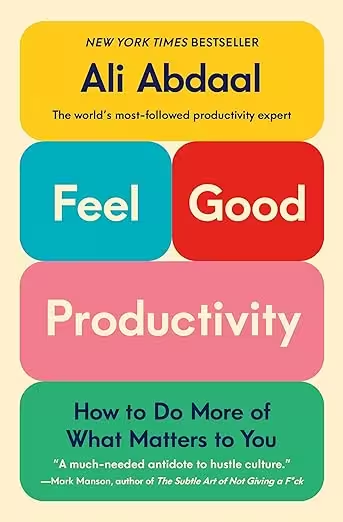
- Feel Good Productivity – Ali Abdaal
- An instant favorite of mine. I am an avid follower of Ali Abdaal and found this book and all of its tricks and techniques to be a valuable resource in my everyday life.
Writing Communities:
I encourage you to find some writing communities in your area or online. There are plenty of places to find them, it may just take a little time and a little courage to do so.
- Libraries
- Almost always the perfect spot to find writing groups. Check their online boards or bulletin boards on location.
- Websites
- Writing and reading sites such as Wattpad, Reedsy, Goodreads, NaNoWriMo, and dozens of others are great places to build your chops and fine-tune your skills. There are endless advice articles and posts from other authors who have most likely experienced the same thing as you.
- Social Media
- An endless stream of like-minded individuals all gathered in a single place. If you use social media such as Tik Tok, Instagram, or Threads, and you use the algorithms for your career, you will be presented with thousands of individuals who you can rely on for encouragement and talk to for advice. Not to mention support each other’s work.
Writing Tools
I have already mentioned some, but there are easily accessible apps and tools at our fingertips, just waiting for us to download and use them. Tools for productivity, inspiration, motivation, and habit building.
- Google Cal
- A great way to stay organized with your time.
- Pomodoro Apps
- There are a few great ones out there, but another tool to keep us in the zone and away from distractions.
- Writing Prompt Apps
- Ways to help us build our skills and practice avoiding those mistakes one prompt at a time.
- Social Media
- A great way to study the human race and use those ideas and characteristics for your story and world-building for a more realistic and intriguing character.
- Amazon Kindle or Library Apps
- You can’t have enough to read to expand your knowledge and improve your craft.
***Please note that links in this site contains product affiliate links. At no extra cost to you, I may receive a commission if you make a purchase after clicking on one of these links.


